I sometimes find it amusing when I receive questions from my readers and I can tell that they assume that I’m an expert an all things musculoskeletal related. Now, due to the fact that I scour through up to 100 journals per month in fulfillment of my responsibilities for Strength & Conditioning Research I do consider myself to be a bit of a renaissance man in the fitness field. However, delving into the research like this teaches you just how clueless you are with regards to many aspects of strength training and conditioning, biomechanics, anatomy, physiology, physical therapy, and research methods.
Realizing Just How Much You Don’t Know
My intern Andrew Vigotsky is one of the smartest guys I know. We meet several times per week and discuss various studies and aspects of science. Quite often we just don’t have the expertise to adequately understand a particular study, so we speculate and hypothesize, but in the end we realize that we’d need to contact the author, read more research, and conduct our own experiments in order to possess a full grasp. The problem is, nobody has this much time to devote to researching. We have to sleep, have social lives, and make money, so we can’t just spend our days in the lab reading and experimenting. That’s why the most intelligent guys in sports science have sufficient experience. It takes considerable time to build up an impressive base of knowledge. I’ve only been critically reading research for around five years. Sure, I read research prior to this, but I never scrutinized it and strived to fully understand it. There are plenty of folks who have been reading, publishing, and peer-reviewing research for several decades.
Nevertheless, there is one topic that I am highly confident in my knowledge, and that’s the gluteus maximus. With every other subject, there’s someone else out there who is much smarter than me. Nevertheless, there are so many aspects to every topic that even the top exert will require consultation with various colleagues, and this includes the gluteus maximus.
For example, a researcher by the name of Gunnar Nemeth and another by the name of Teddy Worrell pioneered some of the hip and gluteus maximus research that is critical for our current understanding of the glutes, and I am building on their foundation. And even though I’m an expert on glutes, I still need much help. For example, I’ve reached out to research professors Silvia Blemker and Sam Ward in the past to reinforce my knowledge of hip extension moment arms, gluteus maximus pennation angles and physiological cross sectional area calculations. I’ve reached out to Stu McGill to help me understand inverse dynamics and modeling, Brad Schoenfeld to help me understand hypertrophy physiology, Matt Brughelli and Jurdan Mendiguchia to help me better understand hamstrings biomechanics and shifting optimal lengths of muscle, JB Morin to help me better understand sprinting forces and biomechanics, Jason Lake to help me better understand biomechanics with regards to the force plate, and Bryan Chung to help me better understand research methods. When I have an EMG related question, I seek help from Noraxon, the company that sold me my Myotrace.
Realizing Just How Much Others Don’t Know
What I’m trying to portray is that we need to have a large network of individuals to learn from in a wide variety of fields. Last year I posted an article on my site showing an illustrated guide to what a PhD is (HERE). We can only be experts in a narrow field, and nobody can know it all – not even close. Albert Einstein, Richard Feynman, and Stephen Hawking were all absolutely clueless about thousands of important topics. In this day and age, each of us are very intelligent in a few areas, moderately intelligent in a broad range of areas, and utterly ignorant in a wide variety of areas.
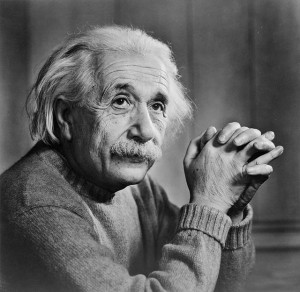
I’ve been very lucky in the past several years to have picked the brains of some of the most knowledgeable people on the planet. I can’t tell you how many emails I’ve shot off to researchers after reading through an article (probably 50% of the time I get a response, and 50% of the time I get ignored). I’ve called researchers on the phone, made special trips to different states (even different countries) just to get a chance to have a discussion with someone I highly respect about a particular topic that’s eating me alive. Consistently, with just about every expert I’ve met, I’m blown away by their knowledge in a specific area, but at the same time, slightly amazed at how little they know about other areas. But it makes perfect sense – a professor studying muscle architecture or neurobiology most likely won’t have the time or passion to put in the same number of hours studying strength training or program design (or other topics that aren’t directly related to their specific interests).
Some experts tend to overestimate their knowledge and assume that just because they’re highly intelligent and knowledgeable in one area, it makes them an expert in another area, while other experts tend to be extremely humble and cautious with their claims pertaining to other areas. It is our job to glean the valuable bits of knowledge that the expert possesses while being able to discern between what to value and what to disregard.
I recall meeting with Michael McGuigan, a New Zealand research professor who specializes in power training. I was very excited about our meeting. I had prepared a list of questions to ask him, and his reply to almost all of them was, “I don’t know.” After the meeting, I had mixed feelings. I realized that 1) I’m constantly seeking out experts to teach me what I want to learn, but often this knowledge doesn’t exist, and 2) My quest for truth is going to require a lot of patience and decades of learning. What I can tell you is that my respect for Michael went through the roof. He didn’t try to pretend he knew the answer to all my questions, he just gave it to me straight. We still had a very productive meeting, discussing current research and theory pertaining to power development, but many times, the burning questions we have in our brains don’t have ample research surrounding them to provide us with sufficient fodder for an answer.
Experts in the Blogosphere
So who are the experts? There are thousands, but you have to find them. In the blogosphere, there are several individuals whom I highly trust and respect. For example, I believe that Chris Beardsley has the best sports science blog on the web. Brad Schoenfeld is the world’s expert in muscle hypertrophy as far as I’m concerned. Alan Aragon has a kickass research review and is the most intelligent individual I’ve ever met in areas pertaining to body composition and sports nutrition. Menno Henselmans is another guy I highly respect. I see a great future for The Strength Guys, Greg Nuckols, and Armi Legge. Layne Norton and Eric Helms are highly intelligent and they walk the walk with regards to natural bodybuilding and powerlifting. Tom Purvis‘s YouTube channel pertaining to biomechanics is incredible. Bryan Chung understands research methods better than just about anyone out there. I tend to be biased towards bloggers who regularly publish research. Since publishing requires so much of a time commitment but doesn’t involve financial reward, this shows a lot about the person’s intent and values.

Menno Henselmans
But here’s the deal. Most of the worlds experts are not blogging. Blogging and social media require a very large time commitment. A top expert doesn’t always have the time or energy to dedicate toward his online popularity or reach, especially when the expert has teaching/lecturing, speaking/presenting, conference attendance, grading, lesson planning, researching, publishing, and committee responsibilities.
Expert Research Professors
Across the world, there are numerous expert research professors. These folks have been trained to understand research, the scientific method, and statistics. They spend their days looking into past research, experimenting, and trying to think up new study designs in order to advance our knowledge pertaining to their area of expertise. They typically go unnoticed and unthanked in the field, though their contribution is invaluable.
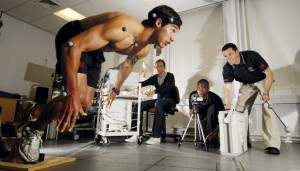
Are these the go-to guys if you want to improve your powerlifting total or learn about program design for team sports? Not always. If you want to learn about powerlifting (or sprinting, or any sport for that matter), you’re going to have to immerse yourself in the sport and listen to a wide range of powerlifters (or track & field coaches, or other coaches from the sport you’re studying). But studying the science of strength training can never hurt you. Research professors are credible because they tend to have more integrity, they tend to be more cautious with their claims, they tend to be aware of the limitations of their data, and they tend to be committed to scientific advancement. Plus they’d be ridiculed if they consistently touted pseudoscience.
Below are some of the top experts in various fields related to fitness. Keep in mind that there are thousands more out there, and that with some of the fields, I’m not well-versed enough to know who the top experts are. There are undoubtedly numerous individuals who belong on this list, but I forgot about them or simply don’t yet know of them. The list is not in any order, and if the individual has a Twitter handle, I linked it.
Strength Training, Power Development, and Biomechanics
Paul Swinton
Robert Lockie
Eduardo Sáez de Villarreal
David Behm
Loren Chiu
John Cronin
Anthony Blazevich
William Kraemer
Keijo Hakkinen
Mike Stone
Muscle Hypertrophy, Sports Nutrition, and Body Composition
Per Aagaard
Sprint Running, Running and Gait
Anthony Schache
Marcus Pandy
Matt Brughelli
Jurdan Mendiguchia
Tim Dorn
Hamstrings
Darryl Thalen
Elizabeth Chumanov
Bryan Heidersheit
Carl Askling
Matt Brughelli
Jurdan Mendiguchia
Anthony Schache
David Opar
Jumping
Maarten Bobbert
The Nervous System and EMG
Carlo DeLuca
Eccentric Resistance Training
Ken Nosaka
Muscle Architecture, Muscle Physiology, Muscle Mechanics
Sam Ward
Richard Lieber
Silvia Blemker
Henk Granzier
Walter Herzog
Scott Delp
Sports Conditioning
Connective Tissue Adaptations
Michael Kjaer
Pain & Physical Therapy
Lorimer Moseley
David Butler
Sports Science Statistics
Will Hopkins
Spinal Biomechanics
Knee Injury Biomechanics
Chris Powers
Timothy Hewett
Conclusion
So there you have it. My current list of favorite experts. This article is my way of giving back to those who passionately pursue their field of study. If you have similar interests as me (sports science, biomechanics, sprinting, power, strength & conditioning), then I recommend that you start following these individuals and familiarizing yourself with their research and beliefs. Wise individuals rely upon trusted sources to keep them informed in areas they don’t have time to research and investigate. Unfortunately, most people never do enough investigation to be able to discern between pseudoscientists, quacks, people with an agenda, snake oil salesmen, and true scientists.
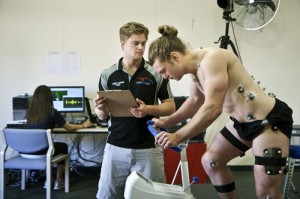

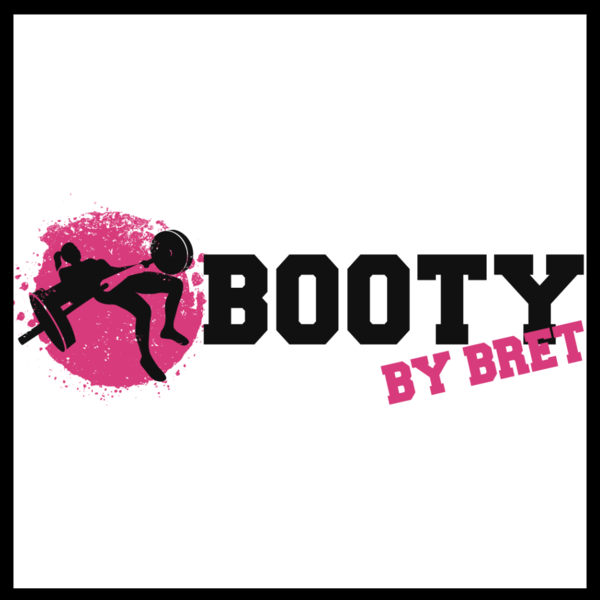
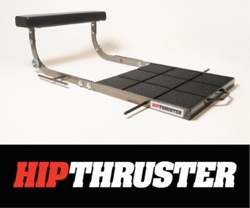
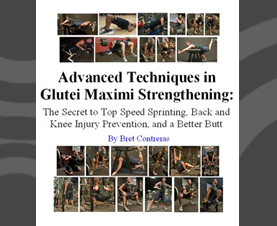
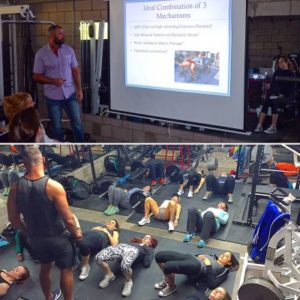
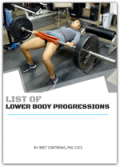
Great Article. Though I would add to your list on spine/physical therapy Dr. James Dunning and Robin McKenzie. Dunning has done more for the PT profession regarding spinal manipulation in recent memory than many others, and McKenzie had revolutionized how chiropractors and PT’s treat sciatica and discogenic disorders.
You’ll probably like the work of Truls Raastad and Mathias Wernbom as well, Bret.
Loren Landow
Very well said. It is interesting and unfortunate how few women make the list.
I feel like Lyle Mcdonald belongs in the Muscle Hypertrophy, Sports Nutrition, and Body Composition category.
I’d add Eric Cressey and someone from Examine.com on that list for sure!
Surpised you didn’t mention Lon Kilgore.
Chad waterbury ,Borge fagerli,hypertrophy.
Natalia Verkhoshansky – probably the worlds top expert on jumping and explosive strength training
Brad Kontrehras, obscure glute guy.
Mel C. Siff?
Dr Mike Newton has nearly 20 years experience in muscle physiology, also one of the best teachers I’ve had. He teaches at Murdoch University in Western Australia.
Great to see one of my own lecturers (Paul Swinton) on the list.
You could also add Ross Tucker (Capetown) of sportscientists.com (running, cycling, hydration, fatigue).
Hey Bret, thanks for this awesome-to-the-next-level article. Any chance you could give us the personal official websites of Chris Powers and Timothy Hewett?
I’ve been suffering from knee pain (overuse injury – climbing stairs, walking and cycling at high speed) from January 2016, which became debilitating from July 2016. You didn’t reply to my question in the article “Heavy hip thrusts done right are not dangerous” 🙁 . PLease help out a brother in need Bret, my life really depends upon you!
I promise I’ll remain grateful to you forever.
Where is Michael Yesis in list of experts?